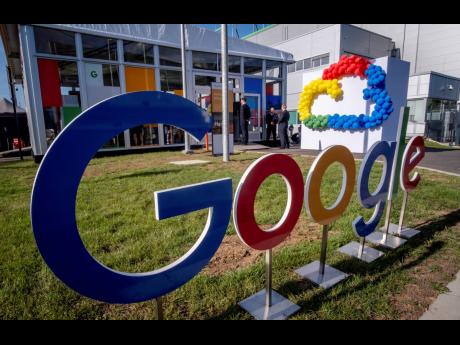Judge orders search shake-up in subdued Google monopoly case ruling
After a five-year legal showdown pitting the US Department of Justice against Google, a federal judge concluded that the disruptive forces of artificial intelligence technology will have a better chance of hobbling an illegal monopoly than any restraints imposed by a court order.
That was one of the underlying themes of a highly-anticipated ruling issued late Tuesday by US District Judge Amit Mehta. After ruling that Google’s dominant search engine had turned into an illegal monopoly back in August 2024, the judge spent the next 13 months mulling the best way to rein in the technology powerhouse’s bad behaviour.
At the same time, the technology landscape had been thrust into the throes of a tectonic shift that couldn’t have been anticipated in October 2020 when the Justice Department filed its landmark antitrust case against Google. At that time, few people had even heard of OpenAI, let alone its chatbot ChatGPT, which wasn’t released until late 2022.
Artificial intelligence rarely came up during the 2024 trial that culminated in Google being declared a monopoly, but the technology’s role became a focal point in the remedy hearings earlier this spring – especially AI’s role in spawning conversational “answer engines” from ChatGPT and Perplexity. Those advances made the judge reluctant to use his legal power to override what may already be happening through technological evolution.
Mehta ended up crafting a subdued ruling that rejected the Justice Department’s push to have Google sell its popular Chrome web browser and block the company from paying – more than US$20 billion annually – to make its search engine the default on popular devices and web browsers.
Instead of embracing those drastic measures, Mehta chose to prescribe what most analysts and antitrust experts viewed as a light-handed punishment.
But the judge is still shaking things up by requiring Google to share some of the secret sauce in its recipe for success – the massive trove of search data that it has accumulated from billions of users since the company’s 1998 inception in a Silicon Valley garage. Parts of those databases will be opened up to rival search engines such as DuckDuckGo and other “qualified competitors”.
Mehta’s ruling is being viewed widely as little more than a slap on the wrist, prompting reactions of disappointment and disdain. “It is a historic misfire that fails to meet the enormity of the finding that Google is a monopolist in online search,” said Christo Wilson, a Northeastern University computer sciences professor, who has studied Google’s operations.
Investors are clearly betting that it will remain mostly business as usual at Google, which is expected to generate nearly US$400 billion in revenue this year. As of early Wednesday afternoon, Alphabet’s stock price had surged by nine per cent, creating an additional US$230 billion in shareholder wealth.
The most noticeable changes in Google will probably continue to come through its responses to AI-driven competition from ChatGPT, Perplexity and others. That’s been the case since Google began to highlight AI-produced summaries at the top of its search results last year and then introduced its own version of an answer engine – via AI mode – a few months ago.
But Google will probably still be the main engine answering queries entered on the iPhone and other internet access points since the judge decided that the company is still allowed to dole out billions to be the default search choice on devices and browsers.
The rationale for allowing all that money to flow went something like this: If the payments were banned, Google would be able to hoard the cash to become even more powerful and most consumers would still end up using its search engine on the iPhone and other devices because it’s still best in class.
The logistics of sharing all of that search data still needs to be worked out, but Mehta did try to limit access to Google’s data in a way to protect consumer privacy. He also wants to give Google rivals just enough information that will allow them to improve the relevance of their own search results, but prevent competitors from poaching all the information that Google has stockpiled during the past 27 years.
AP

